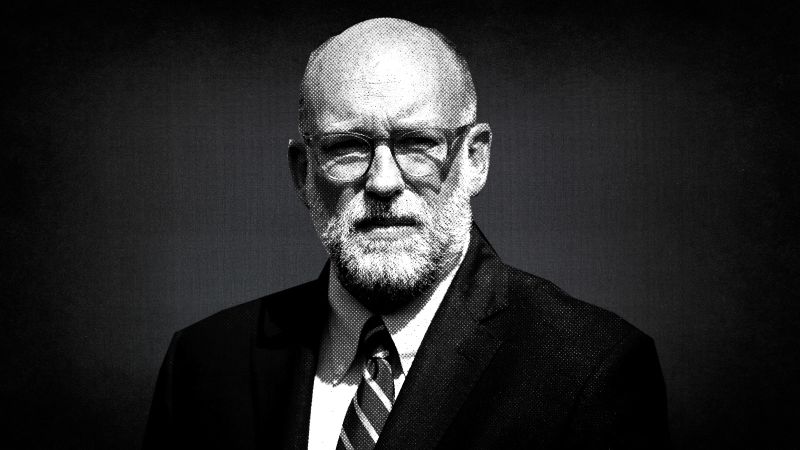The Trump administration memo that landed in federal agency in-boxes last week wasn’t subtle.
As Washington careened toward a government shutdown, there would be nothing normal about the agency contingency planning which has become commonplace in more than a decade of partisan warfare that’s consumed government funding deadlines.
Instead, Office of Management and Budget Director Russ Vought’s 622-word directive dramatically raised the stakes: Every federal agency would now be required to submit detailed plans for mass layoffs.
Those plans would be triggered in the event of a shutdown — and would only be shelved if Democrats agreed to a Republican funding measure they’d already rejected.
The memo symbolized Vought’s methodical march to accumulate power within the executive branch — and the outsized role he has played in getting to this moment. Vought’s vision for how to deconstruct Washington’s sprawling federal bureaucracy, shaped by his years toiling in Republican circles, is now being enacted.
Vought has transformed a role typically focused on the weeds of congressional appropriations into the Trump administration’s primary instrument to dismantle, piece by piece, federal agencies and spending plans.
The OMB has long been viewed as the government’s nervous system. But Vought has managed to use its expansive suite of bureaucratic tools in a way that almost reverse-engineers its authorities: OMB’s guidance documents are no longer filled with benign instructions and updates. Instead, the more than two dozen memos signed by Vought since his return atop the agency track the full scale of the authority he’s leveraged in pursuit of Trump’s agenda, including eliminating longstanding foundations of agency independence and laying the groundwork for actions explicitly intended to break a law designed to ensure congressionally appropriated funds are spent as required.
Activists protest the Russ Vought as he testifies before the Senate Committee on Appropriations on June 25. Kevin Mohatt/Reuters
While Elon Musk and DOGE spent months in the spotlight over sweeping claims of dramatic spending cuts, it was Vought’s long-term plans to drastically overhaul the shape of the federal government that drove the administration’s priorities. Though much of that work has deliberately taken place outside the public view and congressional oversight, Vought’s fingerprints are across Trump’s most audacious attempts to grab power from Congress:
He crafted, calibrated and timed the first successful legislative effort to cancel funds appropriated by Congress in a quarter century with a $9 billion recissions package
He followed that with a second effort to nix another $5 billion in congressionally appropriated money through what’s known as a so-called “pocket rescission.” The move was carefully choreographed with legal maneuvers by the Justice Department in a case involving frozen foreign aid money and timed to fall within the rapidly shrinking fiscal year calendar to box lawmakers out of the process.
He recommended that Trump refuse to designate nearly $3 billion in emergency funds authorized in a March agreement that passed with bipartisan votes. The administration has cancelled tens of billions of dollars in federal grants outright and held up hundreds of billions in congressionally appropriated funds as OMB conducted “programmatic reviews” across seemingly every federal spending account.
He played a critical role in securing Republican votes for Trump’s cornerstone legislative achievement — a bill that Vought helped construct and which managed to lock in funding increases for the Pentagon and Homeland Security Department. In doing so, Vought removed a central point of leverage from Democratic negotiators who for years have cut deals to boost domestic spending in exchange for Republicans’ desire to spend more on defense and immigration enforcement.
He’s been appointed to lead two agencies he’d long disdained for the sole purpose of dismantling them, all while working to reshape the federal workforce through widespread firings. An estimated 200,000 federal employees have so far vacated their jobs, and administration officials are predicting the federal government will have 300,000 fewer employees by the end of the year. Vought is also working toward reclassifying large swaths of workers and cutting back on long-standing employment protections.
He carried out the scrubbing of federal contracts for law firms targeted by Trump over past cases viewed as critical of the president, ensured the federal government doesn’t pursue artificial intelligence proposals that are “woke,” explicitly ended any level of cooperation with the non-partisan watchdog authorized to oversee the govern
Continue Reading on CNN
This preview shows approximately 15% of the article. Read the full story on the publisher's website to support quality journalism.
